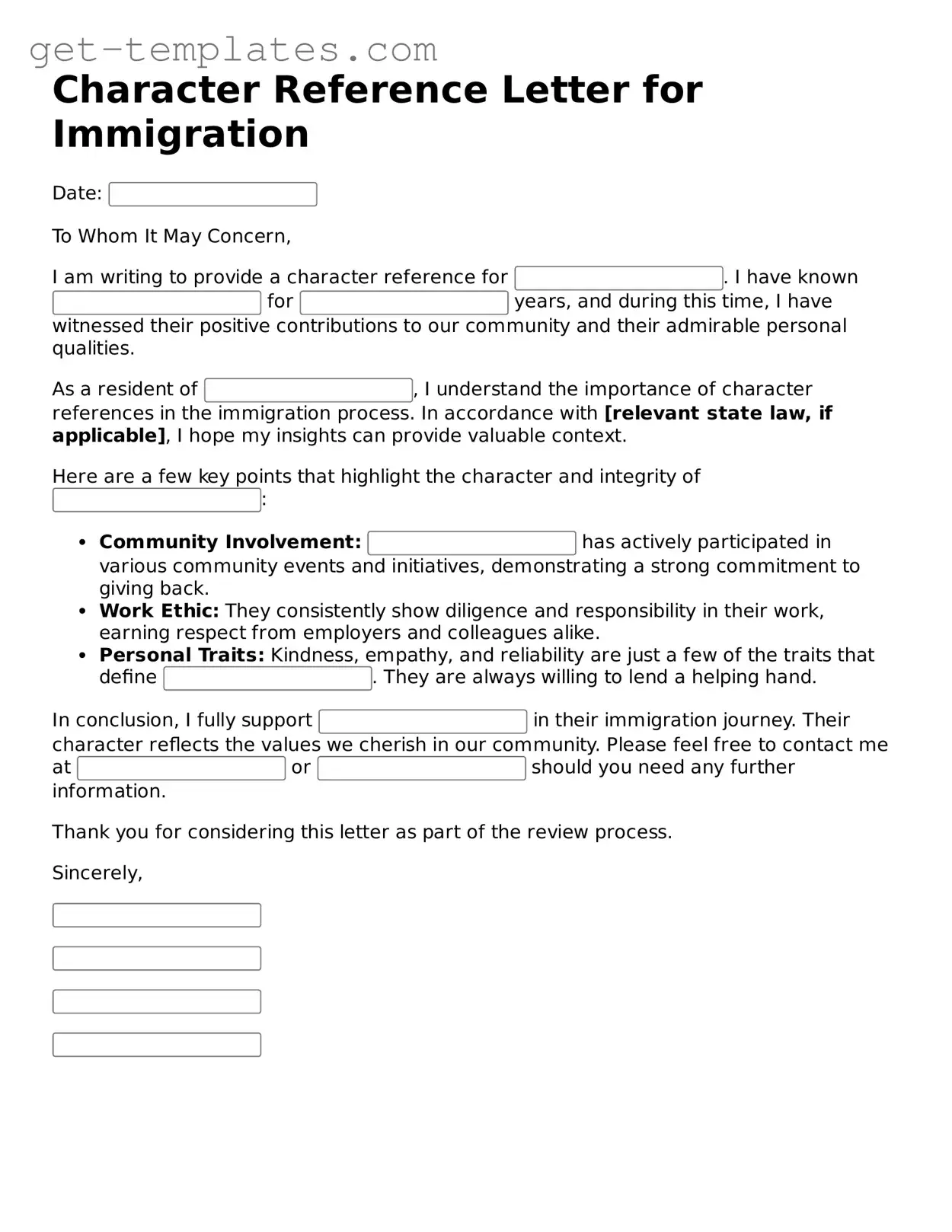What is a Character Reference Letter for Immigration?
A Character Reference Letter for Immigration is a document that provides a personal account of an individual's character, behavior, and contributions to society. It is often used in immigration cases to support an application for residency, citizenship, or other immigration benefits. The letter typically comes from someone who knows the applicant well, such as a friend, employer, or community leader.
Who should write the Character Reference Letter?
The letter should be written by someone who has a close personal or professional relationship with the applicant. Ideal writers include:
-
Employers or supervisors
-
Teachers or professors
-
Community leaders or clergy
-
Friends or family members
It is important that the writer can provide specific examples of the applicant's character and contributions.
What should be included in the letter?
The letter should include several key components:
-
The writer's full name, address, and contact information.
-
A brief introduction explaining the relationship to the applicant.
-
Specific examples of the applicant's good character, work ethic, and community involvement.
-
A statement of support for the applicant's immigration case.
-
The writer's signature and date.
How long should the Character Reference Letter be?
The letter should typically be one to two pages long. It should be concise yet detailed enough to provide a clear picture of the applicant's character. Focus on quality over quantity; specific examples are more impactful than lengthy descriptions.
While there is no strict format, the letter should be typed and printed on a standard sheet of paper. It should include the writer's contact information at the top, followed by the date, and then the recipient's information if known. A formal greeting and closing are also recommended.
Can multiple Character Reference Letters be submitted?
Yes, submitting multiple letters can strengthen an immigration application. Different perspectives can provide a more comprehensive view of the applicant's character. However, each letter should be unique and not simply reiterate the same points.
What is the role of the Character Reference Letter in the immigration process?
The letter serves as a personal testament to the applicant's character and can influence the decision-making process of immigration officials. It can help demonstrate the applicant's positive contributions to the community and support their case for immigration benefits.
How should the letter be submitted?
The letter can be submitted as part of the overall immigration application package. It is advisable to include it with other supporting documents. If required, the writer may also need to provide a copy of their identification to verify their identity.
Can the letter be handwritten?
While a handwritten letter may convey a personal touch, it is generally recommended to type the letter. A typed letter is easier to read and presents a more professional appearance, which can be important in formal immigration proceedings.
What if the writer is not a U.S. citizen?
A Character Reference Letter can still be valuable if written by a non-U.S. citizen. However, it is important for the writer to clearly state their relationship to the applicant and their perspective on the applicant's character. The credibility of the letter may be enhanced if the writer is a lawful permanent resident or has lived in the U.S. for an extended period.

